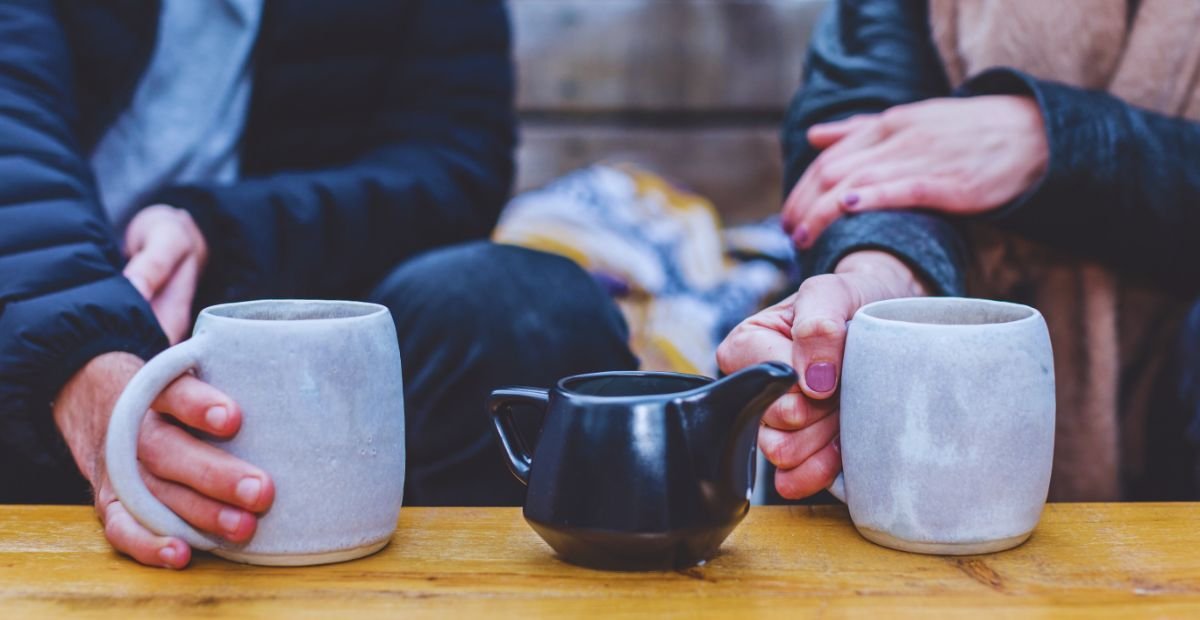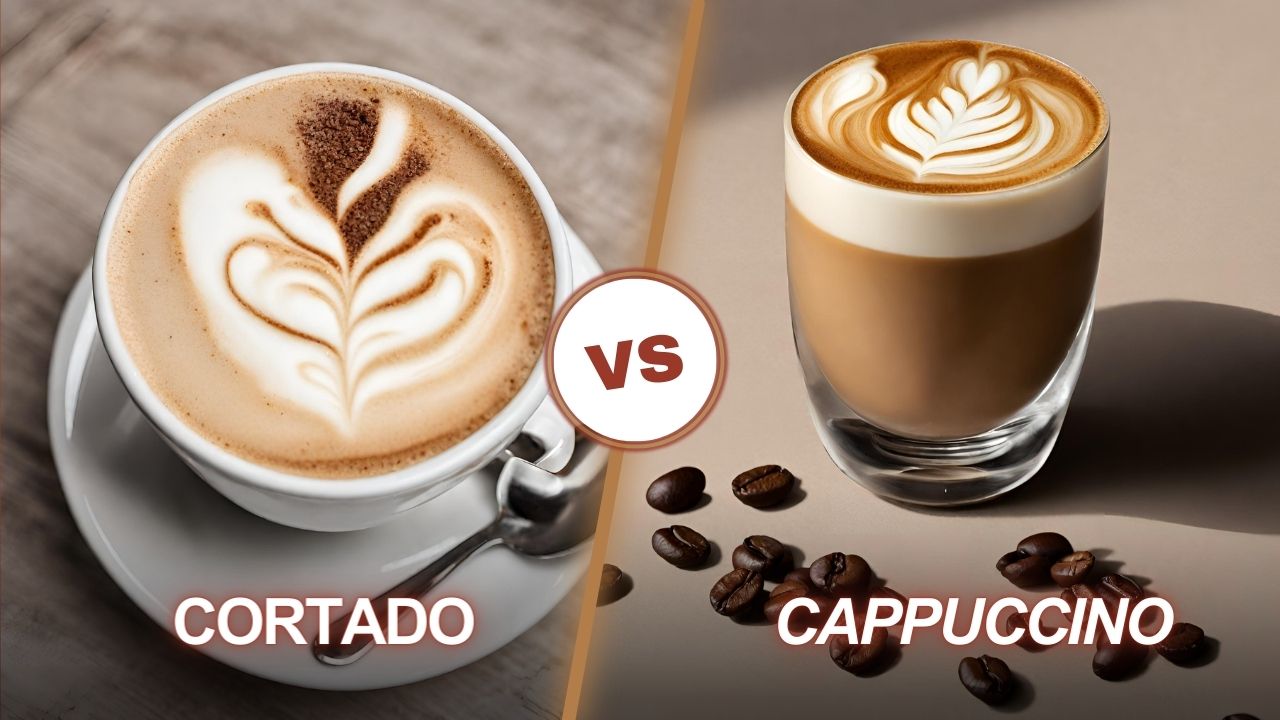Can You Microwave Cold Brew?
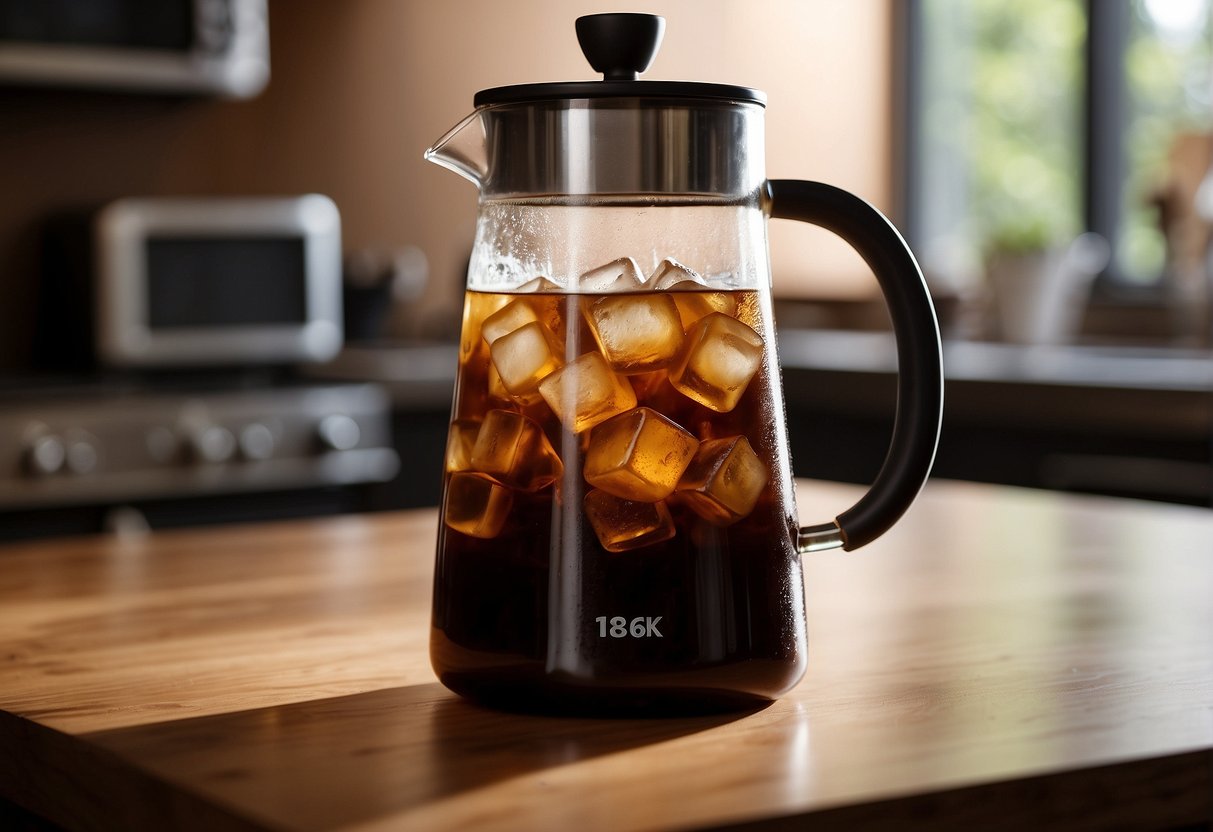
Microwaving cold brew coffee is convenient for quickly heating this beloved beverage. While cold brew is typically enjoyed chilled or over ice, some coffee enthusiasts prefer it hot, especially during colder months, or for a comforting drink. It offers a fast and efficient way to warm a cold brew.
It allows for customization of serving temperature according to individual preferences. However, microwaving cold brew comes with considerations, including potential flavor changes and uneven heating.
In this article, we’ll delve into the nuances of can you microwave cold brew coffee, exploring best practices, potential outcomes, and tips for achieving a satisfying cup of hot coffee while preserving its flavor and quality.
Whether you’re a cold brew lover looking to enjoy it hot or simply seeking a quick caffeine fix, understanding the dynamics of can you microwave cold brew is crucial. This article shows how to microwave cold brew effectively to enhance your coffee-drinking experience.
What is Cold brew coffee?
Cold brew coffee is a slow-brewing method that steeps coarsely ground coffee beans in cold water for 12-24 hours, resulting in a smoother, less acidic concentrate. This process extracts different compounds, resulting in a milder flavor profile. Traditionally served cold or over ice, it can be enjoyed hot or colder.
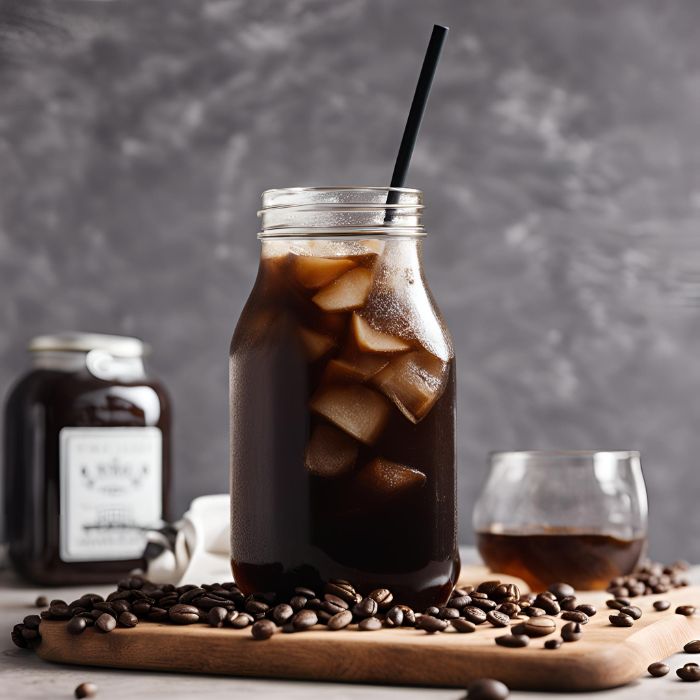
Can You Microwave Cold Brew? Heating Tips & Safety
- To ensure a safe and enjoyable microwaving experience.
- They can use a microwave-safe container, stir or agitate the coffee, monitor heating time, avoid boiling, and dilute the coffee with hot water.
- It has experimental flavors like milk, cream, sugar, or flavored syrups.
- Avoid overheating the coffee to the point of boiling.
- as it can alter its flavor and texture.
- Additionally, it can include adding complementary ingredients like milk, cream, sugar, or flavored syrups to balance the changes in flavor.
- It creates a more enjoyable drinking experience.
How do you make cold-brew coffee?
Making cold-brew coffee at home is a simple process that requires minimal equipment and ingredients.
Ingredients:
- Coarsely ground coffee beans
- Cold water
Equipment:
- Large container or jar with a lid
- Coffee filter or fine mesh strainer
- Cheesecloth (optional)
- Funnel (optional)
Instructions:
- To make cold-brew coffee, coarsely grind your beans, combine them with cold water, and stir.
- Steep the mixture for 12–24 hours, strain the grounds with a filter or cheesecloth, and store in the refrigerator for up to two weeks.
- It serves cold-brew coffee over ice and dilutes it with water or milk.
- It can also add sweeteners or flavorings for a personalized drink.
- Enjoy your homemade cold-brew coffee in a relaxed atmosphere.
Can You Microwave Cold Brew?
It is possible to warm up cold brew coffee. While some coffee enthusiasts may find the thought of heating cold-brewed coffee disturbing, it offers a variety of options for those who prefer a warm cup without the silky texture of cold brew.
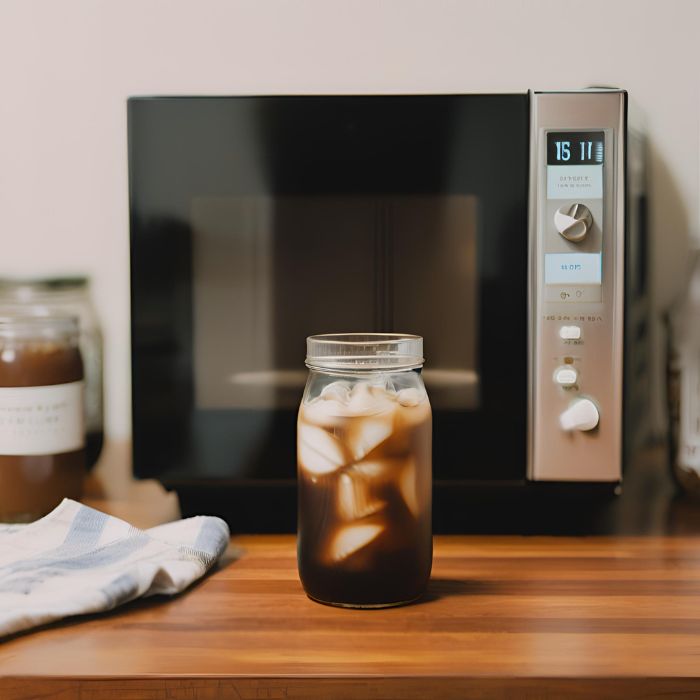
How does heat affect the flavor and aroma of cold brew?
The impact of heat on the flavor and aroma of cold brew coffee is significant and can alter its characteristics in several ways:
Bitterness:
- It can extract more bitter compounds from the coffee grounds.
- Especially if the cold brew is heated to high temperatures or for an extended period.
- Bitterness can overwhelm the natural sweetness and nuanced flavors of the coffee.
- It’s resulting in a less enjoyable drinking experience.
Acidity:
- Cold brew coffee is prized for its low acidity compared to hot brewed coffee.
- However, heating cold brew can increase its acidity, as heat promotes the extraction of acidic compounds from the coffee grounds.
- This may lead to a sharper, more acidic taste that deviates from the smoothness typically associated with cold brew.
Aroma:
- It can volatilize aromatic compounds in coffee, releasing them into the air and intensifying the aroma of the beverage.
- It can enhance the sensory experience of hot coffee.
- It may also lead to a loss of aroma complexity in cold brew coffee if heated excessively.
Flavor Profile:
- Cold brew coffee is known for its smooth, mellow flavor profile with subtle notes of chocolate, caramel, and nuttiness.
- Heating a cold brew can alter its flavor profile.
- It is potentially diminishing these delicate nuances and introducing harsher, less refined flavors.
Overall Quality:
- Ultimately, the effect of heat on the flavor and aroma of cold brew coffee.
- It depends on various factors, including the heating method, temperature, duration, and personal taste preferences.
- Some individuals may enjoy the taste of the heated, cold brew.
- It may be that it detracts from the unique qualities that make cold brew coffee appealing.
How do I heat cold brew?
Heating cold brew coffee can be done using several methods, each with its benefits and considerations.
- It is a quick and convenient method for heating cold-brew coffee.
- It involves heating the coffee in short intervals, stirring in between.
- Stovetop heating allows for more control and preserves the flavor.
- A steam wand from an espresso machine can be used for a creamy texture.
- A double boiler gently warms the coffee without directly exposing it to high temperatures.
- A hot water bath allows the coffee to warm gradually, preventing overheating.
- These methods help maintain the taste and texture of the coffee.
FAQs:
How should a cold brew be heated?
According to many, cold brew concentrate can also be used to make hot coffee. The concept is as simple as adding boiling water to a few ounces of concentrate. This brings the concentrate to a heated, but not boiling, temperature.
How should cold brew coffee be used?
Pour the cold brew essence into an ice-filled glass to serve cool. The concentrate can be diluted to your preferred strength. Adding milk or a milk substitute is a fantastic approach to having a creamy and smooth cold brew. To your drink, add ½ to two tablespoons of milk.
Why is cold brew better than coffee?
But cold brewing follows a different set of guidelines. Not only does the cold water slow the process of extracting these delicious chemicals. It genuinely modifies what remains on the premises and what is removed. According to tests, cold-brewed coffee might have up to 66% fewer acids and be more bitter than hot coffee.
Can I use warm water to produce a cold brew?
The following requires you to brew water to the proper temperature. For optimal taste, you should use water filtered and warmed to a temperature of 195 to 205 degrees Fahrenheit. After heating the water, combine the hot water and coffee grinding in a 1:1 mixture.
What is the duration of cold brew?
You can keep your cold brew in the refrigerator for 10–14 days in a sealed bag to preserve its freshness and clarity. After this time, throw it away right away if you detect any cloudiness or sour tastes or aromas, as they could be indicators that the food is spoiling.
Wrapping up
In conclusion, the question of whether can you microwave cold brew coffee is relevant for those looking for a convenient option for quickly heating it. However, it’s important to approach this method carefully to preserve its flavor and quality. By understanding the characteristics of cold brew coffee, the pros and cons of microwaving, and following best practices, you can enjoy a satisfying cup of hot coffee without compromising on taste.
Experimentation and personal preference play key roles in finding the optimal heating method for your cold brew coffee, so don’t hesitate to adjust and customize according to your tastes. Whether you enjoy it cold, hot, or somewhere in between, cold brew coffee offers a versatile and refreshing beverage option for coffee lovers everywhere.

